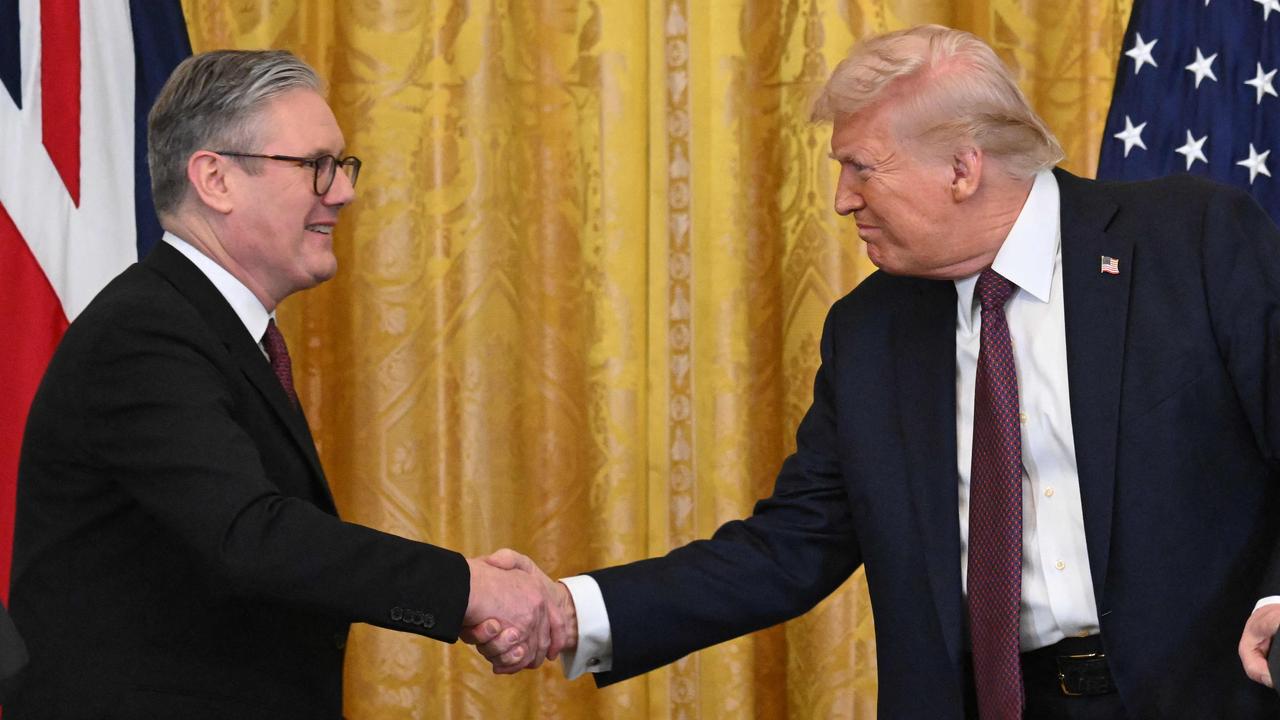Relief as Australia dodges recession with national accounts marking a return to growth
PRIME Minister Malcolm Turnbull can breathe a sigh of relief after the nation narrowly avoided slipping into a recession.
PRIME Minister Malcolm Turnbull can breathe easier after the nation narrowly avoided slipping into a recession.
The national accounts released today reveal that Australia’s economy grew by 1.1 per cent in the last quarter, after slipping 0.5 per cent in the three months to December 1.
When gross domestic product falls in two successive quarters, the nation is considered to be in a recession.
The recovery after the September quarter’s shock economic contraction means Australia has avoided a feared recession and remains on course to complete 26 years of uninterrupted expansion.
Treasurer Scott Morrison responded cautiously, telling reporters that while he welcomed the result, the nation’s economic growth “cannot be taken for granted and is not being experienced by all Australians in all parts of the country in the same way”.
“Our growth continues to be above the OECD average and confirms the successful change that is taking place in our economy as we move from the largest resources investment boom in our history to broader-based growth,” Mr Morrison said.
Official data from the Australian Bureau of Statistics reveals that the GDP growth reflected the strong performance of 15 out of 20 industries, with mining, agriculture, forestry and fishing and professional scientific and technical services the star performers.
The strength in commodity prices helped drive a 16.5 per cent increase in private non-financial corporations’ gross operating surplus.
Australia’s terms of trade — the ratio of the nation’s export prices to its import prices — grew by 9.1 per cent, thanks to strong price rises in coal and iron ore, marking a 15.6 per cent improvement on the December 2015 quarter.
The nation’s GDP has now grown 2.4 per cent through the year, while its nominal GDP — evaluated at current market prices — grew by 3.0 per cent to be 6.1 per cent higher.
WAGE EARNERS THE BIGGEST LOSERS
In good news for retailers, real net national disposable income increased by 2.9 per cent for the quarter.
But for wage earners the picture was more subdued, with compensation of employees falling 0.5 per cent for the quarter, although it is 1.5 per cent higher compared to a year ago.
Mr Morrison said the 0.9 per cent increase in household consumption, which contributed 0.5 per cent to growth, was a key factor in bolstering the post-mining boom economy.
“Despite subdued wages growth, Australians are reflecting confidence in the economy,” he said.
“Increases in housing supply are expected to continue for several quarters, as there remains a considerable pipeline of work yet to be commenced.”
He noted that new business investment was up almost 2 per cent, after 12 consecutive quarters of decline, while dwelling investment rebounded by 1.2 per cent.
“(This) reflects the improvement in business sentiment that we have seen in recent months,” Mr Morrison said, adding that further incentives were needed “to lift wages and increase jobs, to increase the number of hours people have access to”, touting the government’s enterprise tax plan.
“We must take the necessary steps to keep expenditure under control structurally, to boost investment, to maintain the AAA credit rating by following this path and to ensure that we’re able to sustainably fund necessary government services, not just now but in the future by ensuring we deal with these difficult decisions the Government is making.”
The release of the latest national accounts comes as new Grattan Institute research argues Australia’s low investment environment risks “economic stagnation”.
It says Australia has experienced its biggest five-year fall in mining investment, while non-mining investment as a share of gross domestic product is around a 50-year low — and that the government’s plan to reduce the company tax rate from 30 per cent from 25 per cent would help lure foreign investment to Australia.
Debate on the government’s 10-year plan to incrementally reduce the business tax rate is scheduled to resume in the House of Representatives this week.
Labor has argued that company tax cuts should only pursued as part of a broader tax reform package to soften the impact on low and middle-income earners.




